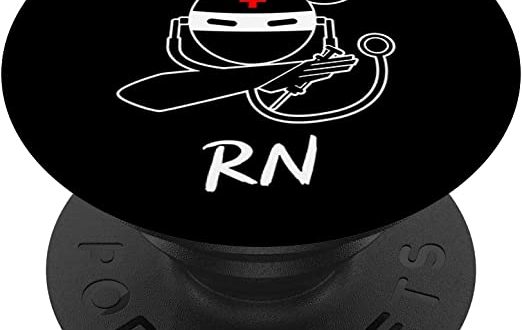Nursing was incepted around 300 A.D. and may be the oldest known profession. It is a highly demanding field, demanding continuous education, skill and experience, and severally, long working hours.
Sometimes, nurses fall sick and are not in the best shape to give care. With hectic schedules in an often thankless environment, burnout occurs as the nursing profession drains physically, emotionally, and mentally. Nevertheless, nurses are always at the forefront of disease prevention, patient care, and health advocacy.
We examine the incentives behind the consistent compassion of nurses.
Why do Nurses Love Their Job?
How well a nurse is motivated affects their response to situations and challenges at work. For a nurse to maintain passion in the profession, personal and organizational factors are usually in play. These include; autonomy, salary, recognition, achievement, administrative support, responsibility, managerial support, working conditions, promotion and advancement, socio-political climate, supervision, and physical environment.
Promotion
Being in a position of authority makes nurses happier in their roles. The recognition and rewards derived from positions of power contribute to the happiness of lead nurses compared to staff nurses.
Years of Experience
The longer you stay in the nursing profession, the more refined your skills get if you are a continuous learner. However, personal responsibilities such as family may affect satisfaction from years of experience. The experience gets rewards through increased autonomy, remuneration, and recognition at the workplace. Experienced nurses are more often happy.
Autonomy

When nurses are involved in decision-making at the workplace, it promotes confidence and happiness. As a nurse, you delight in having seniors acknowledge that you can handle your workload effectively and independently. It increases your respect from others within the nursing practice. The best roles to have autonomy are nurse practitioners, home nurses, or forensic nurses.
Management and Supervision
When management in a healthcare setting offers supportive supervision, a nurse feels more motivated and is more effective and happier. Supportive monitoring offers problem-solving leadership, which adds value to the nursing experience. Unsupportive control or micromanagement has the opposite effect. It adds unnecessary pressure to an already tense environment.
Administrative Support
When a nurse feels belonging in a team, made possible by supportive communication, functional teamwork is easier. Administrative support includes feedback on services, training, and polite and timely communication.
In addition to continuous training making healthcare settings more efficient, it brings fulfillment to nurses as it offers them the opportunity to practice the skills learned in practical situations. Training, seminars, and other education opportunities organized by the administration equip nurses for career advancement.
Salary
Increments in remuneration are directly proportional to satisfaction, hence happiness in nurses. Nurses who receive higher pay and additional benefits such as fringe payments remain more motivated and happier. When a nurse gets a good salary, they can fulfill individual needs and stay comfortable on the job.
Job Security

When choosing a career, 75% of people globally consider job security very important. Nursing is a safe profession. Nurses derive joy from the fact that you will always be in demand once trained as a licensed nurse. The job market is constantly growing, even as the profession goes through revolution and advancement.
Recognition
Recognition is a non-financial reward. It occurs through verbal praise and appreciation for the efforts of a nurse. Other contingent measures for recognition can be through staff appraisal and giving leadership and supervisory roles. When nurses are appreciated, they are happy and function better.
Working environment
Optimal work environments should have a balance between organizational and personal fulfillment. In nursing, this is done by considering the availability of resources, well-balanced shifts and leave days, remuneration and allowances, and accessibility to a safe and sanitary duty station.
When a nurse has a work schedule that allows them to be flexible and recharge, they remain happy, reducing occurrences of burnout. A nurse is more likely to work longer in a good environment.
Why would Nurses be Unhappy at Work?

Lack of Appreciation
So many patients, and sometimes doctors, view nurses as hired help, wanting to order them around. Nurses in the Emergency Department get yells throughout their shift, which can be draining. Physical and verbal abuse can also occur from patients, to which a nurse may have no recourse.
Staff to Patient Ratios
Nurses handle human lives. Slight miscalculations can cost you the life of a patient and your license as a nurse. With understaffing in most facilities, nurses get overwhelmed as they have to be alert while dealing with demanding and sometimes unrealistic situations.
Lack of Breaks Within Shifts
Nurses barely have defined breaks, as work varies with every 12-hour shift. Most times, nurses are on their feet and engaged throughout the 12 hours, which may extend, and they may not even get time to do a lunch or tea break.
Empathy
Nurses deal with human lives daily. They get to see children being born and people dying. Sometimes, a patient could die in your hands as a nurse, and you are left questioning what you could have done better. Empaths in the nursing profession must go for frequent counseling to prevent burnout.
Misconception
Most people go into nursing, idealizing it as a lucrative career. Upon starting the practice, you realize that nursing is a calling. It demands you to be fully present and go out of your comfort and place the interests of the patients first. The misconception is one reason why there is a constant shortage of nurses. Most choose the profession with misinformed motivations.
Conclusion
Nursing is among the most fulfilling professions that a caregiver can be in, despite the long hours of work and always being on your feet. It is not just a job, but sacrifice and service. It is both demanding and rewarding.
As a nurse, you eventually realize how many of your joyous moments you miss, just to put smiles into the lives of your patients. You work even during holidays and family functions. Nurses should, however, take time to take care of themselves to serve others, as you cannot pour from an empty cup.
 Nursing Trends
Nursing Trends







